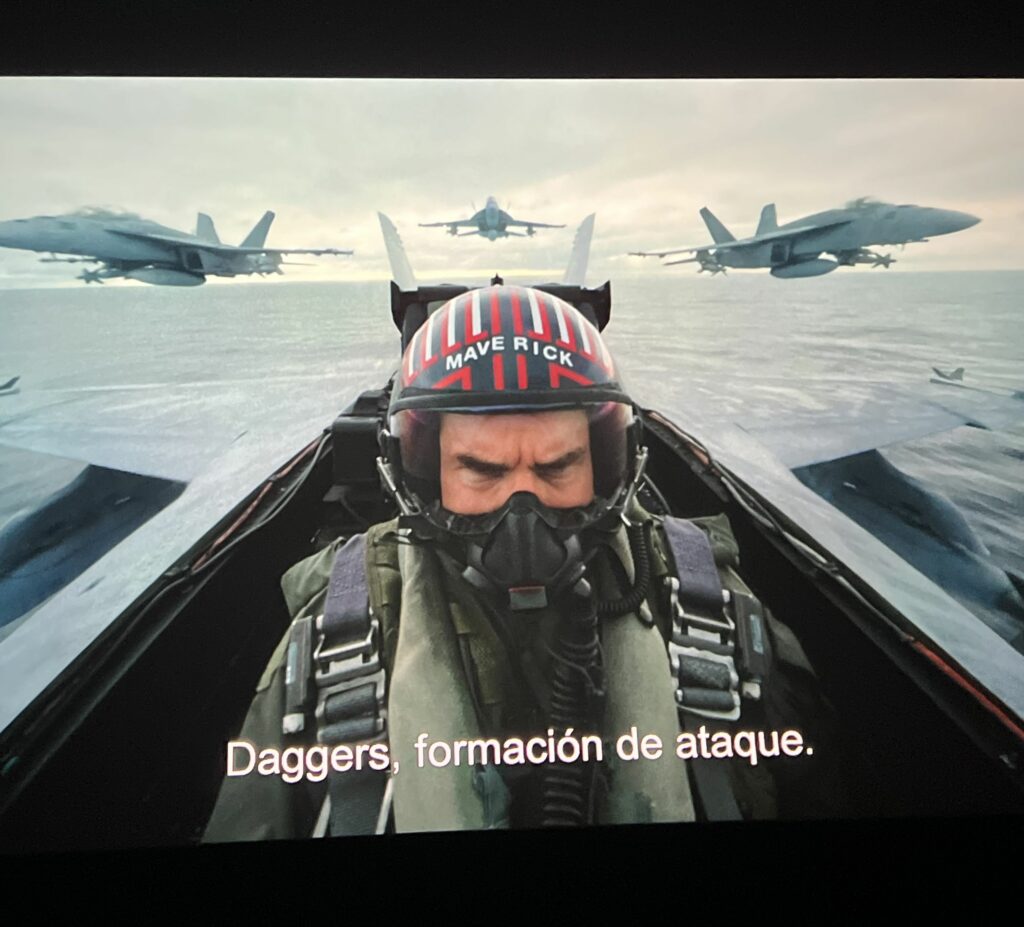1.Uber is illegal but very cheap
- Due to the unionization of taxi drivers in Colombia, Uber is illegal. However, they are still very common! The app functions the same, but the cars do not have any signs that identify them as Ubers. The drivers also expect you to use the passenger seat, even if you’re riding alone, because it looks less suspicious.
2. Students dress up for class
- In the US, it is very typical to wear sweatpants, running shorts, t-shirts, and sweatshirts to class. But in Colombia, people dress up for almost any occasion, including class. Here, it is very common to dress “cute casual” and almost always in pants.
3. Cats and iguanas live on campus
- It’s so fun to see the animals while walking through campus. Students often pick up the friendly cats, who are given flea collars, and carry them until they get to class. However, you should watch out when walking under trees because you could have an iguana about to relieve itself above your head!
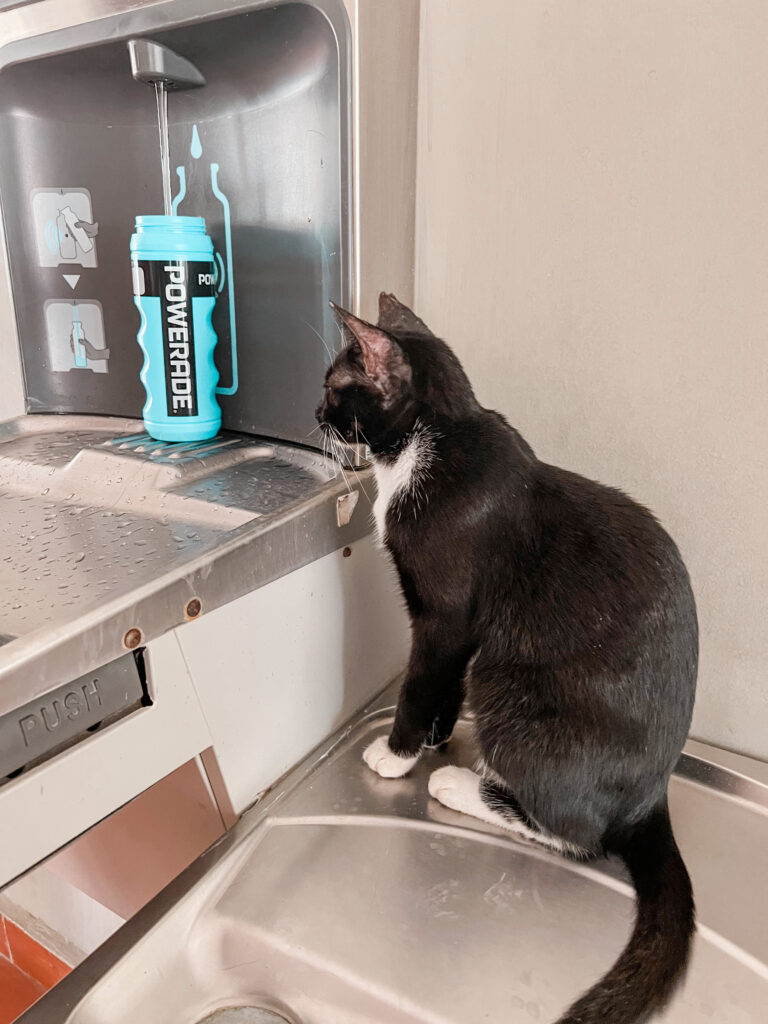
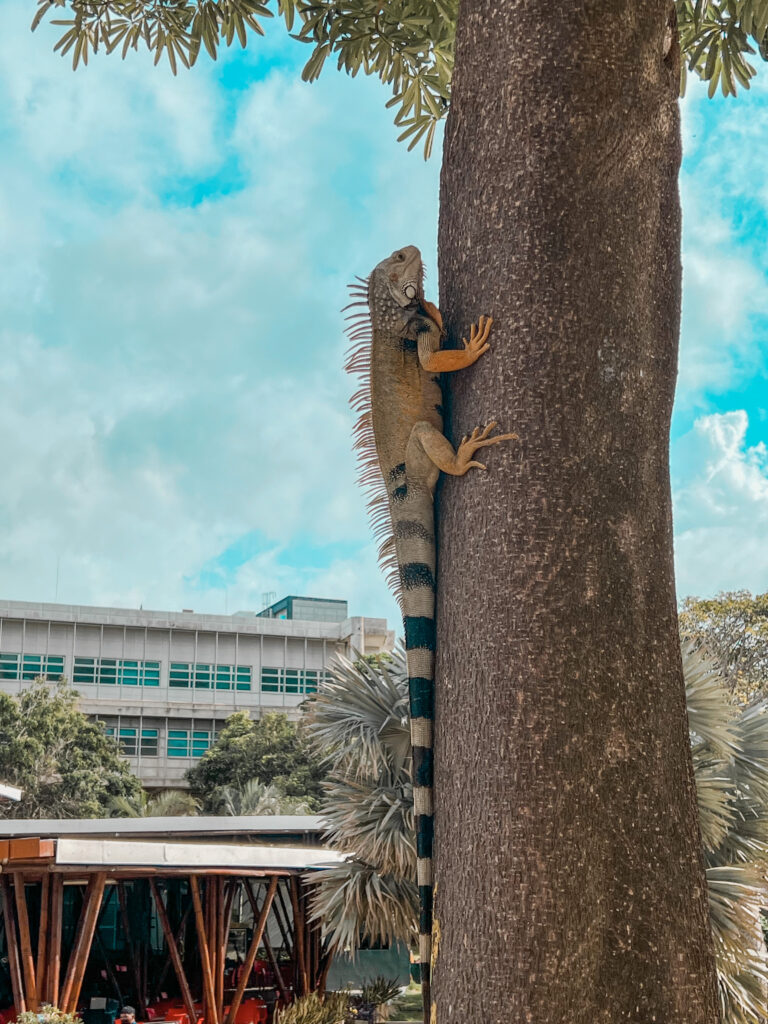
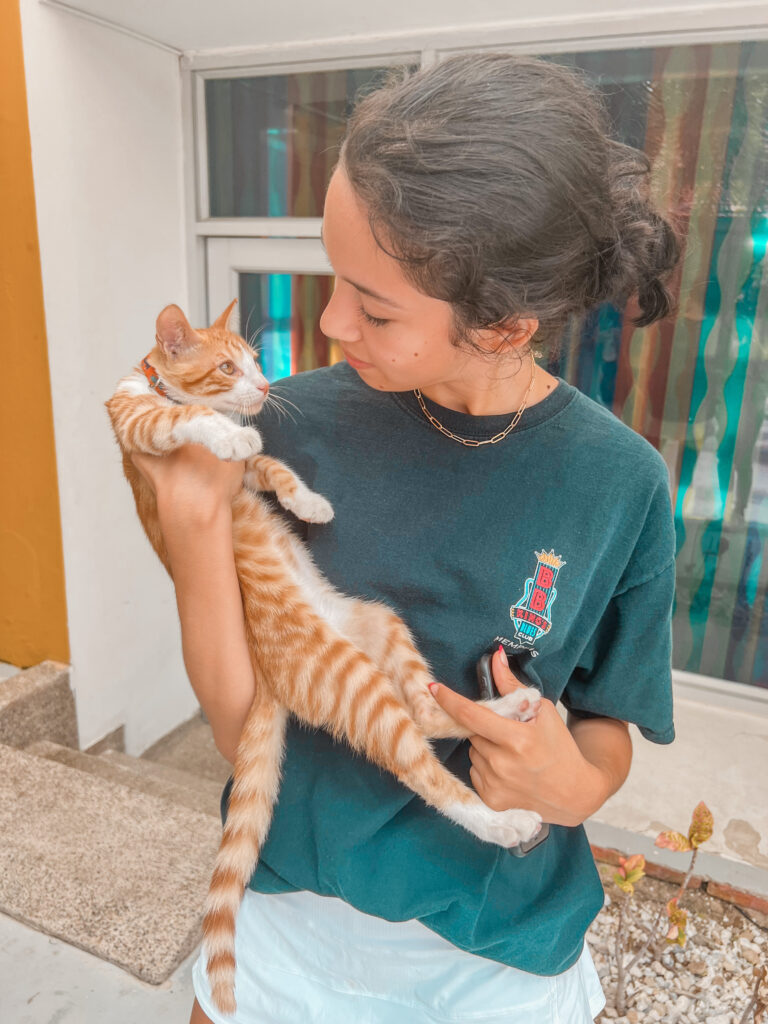
4. On airplanes, it is not custom to move into the aisle to let someone into the window seat
- In the US, a person sitting in the aisle seat will typically move into the aisle to allow someone with a middle or window seat to sit down. However, when my friends and I flew to Medellín, we saw this was not the case. The person in the aisle seat will typically remain sitting, and you just have to hope you won’t fall on them, or hit them with your bag, while climbing over!
5. Honking is a form of communication
- If you’re anywhere near the road in Colombia, you’re going to hear constant honking. Usually, it isn’t meant in a rude manner, it’s just to communicate. However, it can be confusing to know whether a series of honks means, “I’ll stop for you,” or “watch out, I’m not stopping for you!”
6. Stop signs and lanes are treated as suggestions
- Honking is necessary because this is the case! Usually drivers will stick to their lanes, but motorcyclists will not. There is constant merging, swerving, and cutting other drivers off. Stop signs function more like yield signs. The scariest part is that drivers won’t always wait for an opening to cross oncoming traffic; they’ll inch out until the oncoming cars are forced to stop. In a way, it’s a matter of who has the most guts! Unfortunately, this has resulted in us seeing many accidents while here.
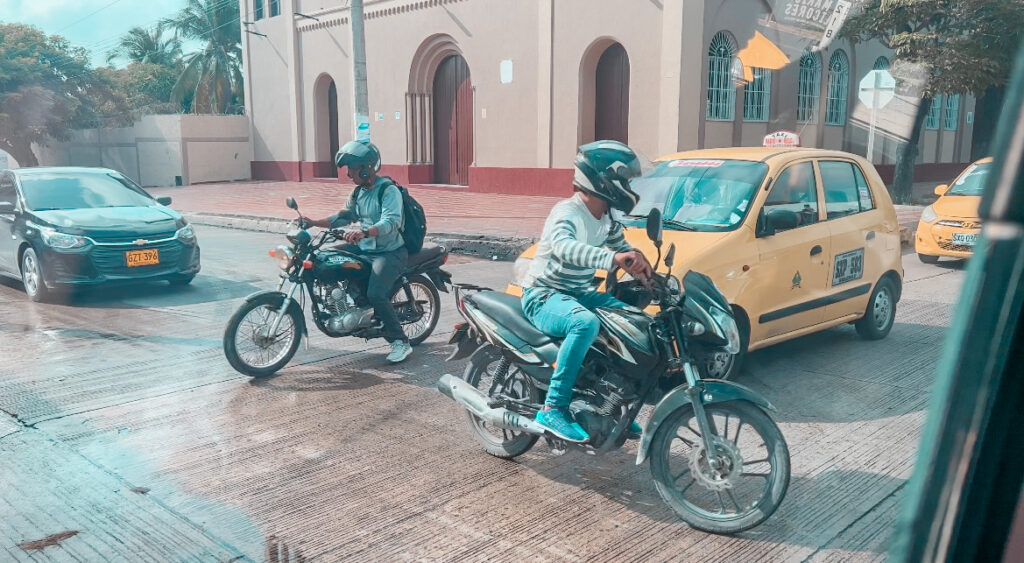
7. Used toilet paper belongs in the trash
- This took some getting used to! Because the infrastructure in Colombia isn’t the greatest, putting toilet paper in the toilet can lead to major issues in the pipes. Instead, there will always be a trash can nearby for you to throw away used “papel higiénico.”
8. There is a large Arab presence and influence
- Historically, there has been a large presence of Arab people in Colombia. For this reason, you’ll see many Arab restaurants in the country. Barranquilla, where we are staying, also happens to be home to the largest number of Arab people in Colombia.
9. The difference between the coast and the inner country is stark
- The biggest difference we noticed is between coastal and non-coastal accents! Coastal accents are typically very thick, and the people speak faster. It is well known, even within the country, that “costeños” are usually more difficult to understand if you aren’t from the coast. There are also differences between the types of food and dances.
10. Air conditioning is a privilege
- Like in Europe, it is not common to have air conditioning in the home. For this reason, people typically go to the mall or to restaurants to enjoy the air conditioning. Fortunately, as required by our program, we were provided with air conditioning in our host homes!
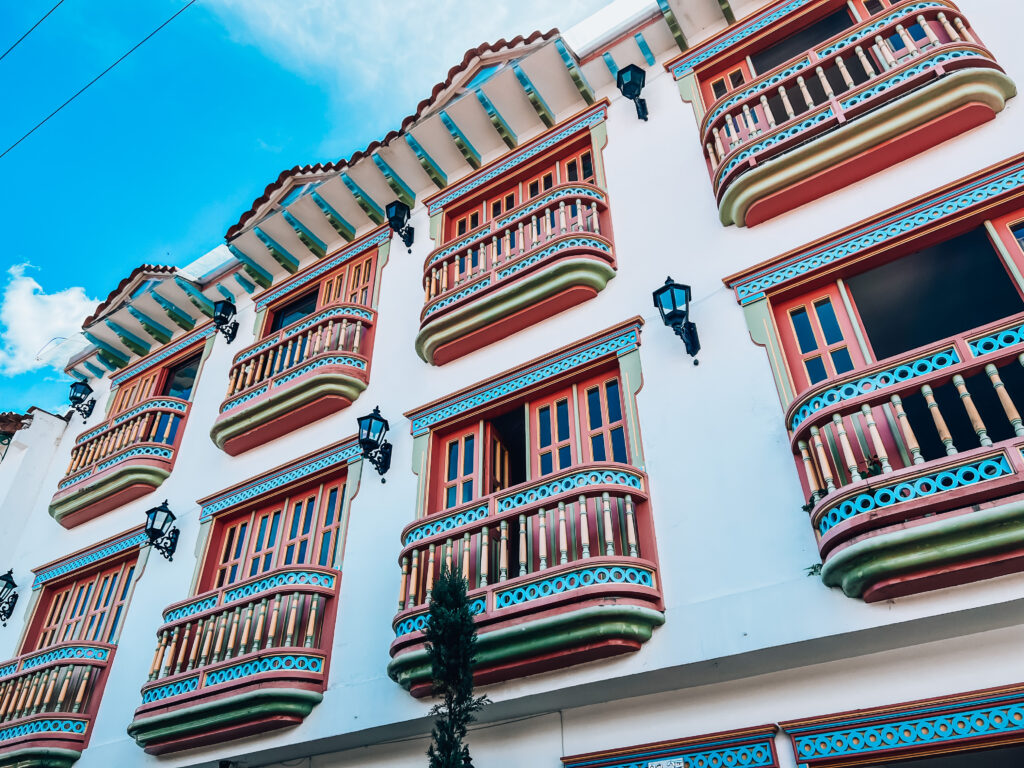
11. “Cover” exists in Colombia too
- As in Tuscaloosa, some bars require you to pay cover in order to enter. Interestingly enough, there is no translation for the word, they simply call it “cover” as we do. However, unlike T-Town, cover is unlikely to be more than $5.
12. There is a job for everyone
- One thing I’ve found interesting here is that they have jobs for all sorts of things. While many jobs in the US are becoming automated, that doesn’t seem to be the case in Colombia. Here, there are jobs for people to pump your gas and help you pull out of parking spaces onto busy roads.
13. You have options at the movies!
- If you’re seeing a movie in theaters, you can choose to watch it in English with Spanish subtitles, or you can watch it with Spanish dubbing. Instead of merely offering plain popcorn, the theaters also sell sweet popcorn. For the perfect sweet and salty snack, opt for a mix of both!
